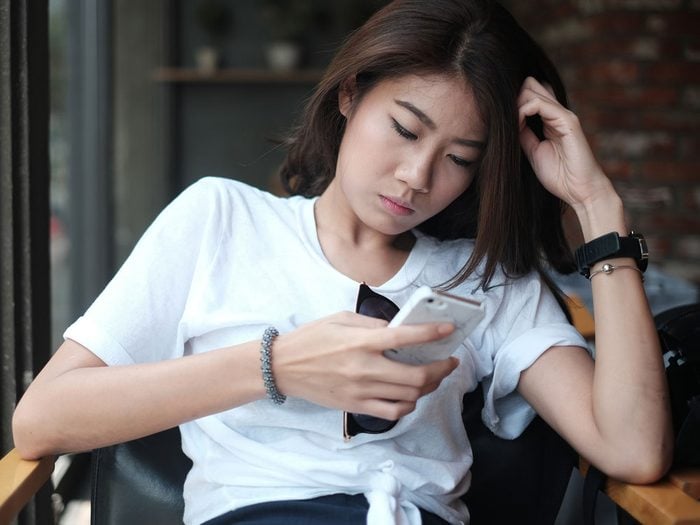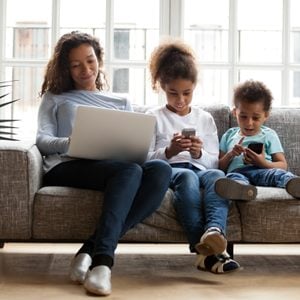The Hidden Downside of Your Social Media Obsession

It turns out social media may not be so social after all.
Social media is all about connecting with others. But a new study suggests that too much social media leads to disconnection and loneliness—basically the opposite of what we are led to believe.
The study, “Social Media Use and Perceived Social Isolation Among Young Adults in the U.S.,” which was published in the American Journal of Preventive Medicine, found that heavy use of platforms such as Facebook, Snapchat, and Instagram was associated with feelings of social isolation among young adults.
Study co-author Brian Primack and his team from the Center for Research on Media, Technology and Health at the University of Pittsburgh surveyed 1,787 U.S. adults aged 19 to 32 and asked them about their usage of 11 social media platforms (outside of work). They also asked participants questions related to social isolation, such as how often they felt left out. The participants who reported spending the most time on social media—over two hours a day—had twice the odds of perceived social isolation than those who said they spent a half-hour per day or less on the same sites. Additionally, people who visited social media platforms most frequently (58 visits per week or more) had more than three times the odds of perceived social isolation than those who visited them fewer than nine times per week. (Find out more social media mistakes that can damage your relationships.)
According to Tom Kersting, psychotherapist and author of Disconnected, the key to understanding these results lies in our understanding of “connections.” “Humans are social-emotional beings, meaning that it is in our DNA to be connected, face-to-face, with other humans,” he told Reader’s Digest. “Although people think being on social media all the time makes them ‘connected’ to others, they are actually ‘disconnected,’ because the more time one spends behind a screen, the less time one spend face-to-face.”
“Part of the issue of loneliness is that the majority of people who use social media aren’t just posting, they are also viewing,” Kersting continued. “They are spending a lot of time voyeuristically looking at everyone else’s posts, where they are, where they are going and what they are doing. The constant exposure to everyone else’s ‘perfect’ life experiences causes feelings of being left out, of being lonely.”
So what’s the answer? It’s simple, says Kersting—although it does involve a significant amount of will power. “The solution to this is resisting the temptation to look at everyone else’s life. Just focus on your own life, where you’re going, what you are grateful for, and what you want to accomplish in this world. Then go out and do it, and stop wasting so much time comparing.”
Next, check out 10 expert tips for overcoming Facebook addiction.






